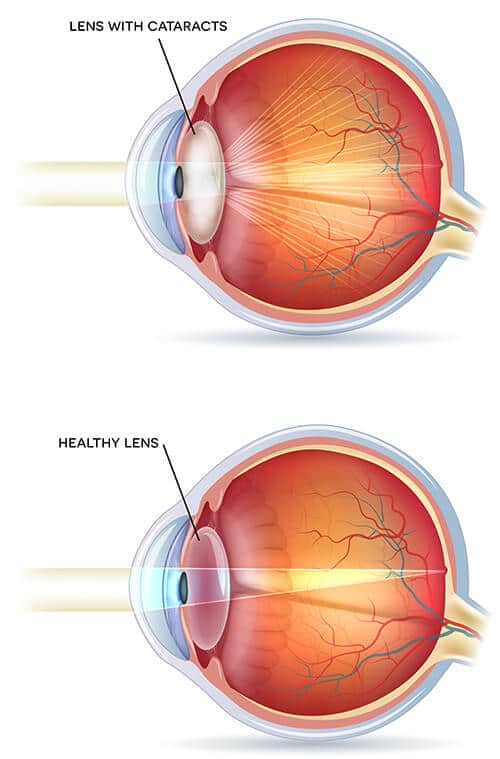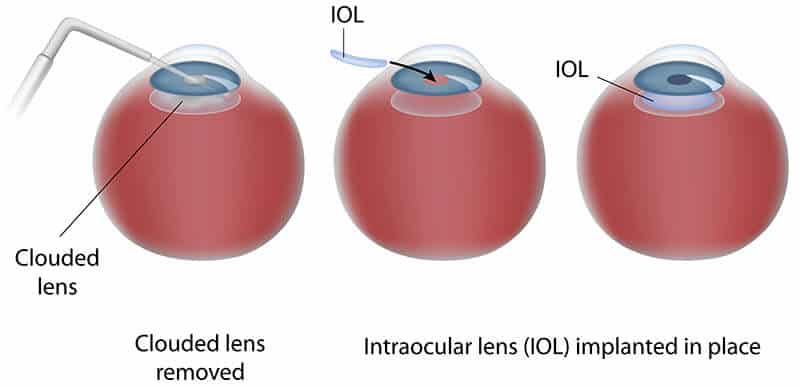Cataract Surgery
Cataract Surgery
Is your vision becoming increasingly cloudy or blurred, making it difficult to see clearly? You may be experiencing the effects of cataracts. At All Eye Care, P.A., we specialize in cataract surgery to help restore your vision and improve your quality of life. Led by Dr. Rugwani, our compassionate team is here to guide you through every step of the process.
Understanding Cataracts: Overview, Symptoms, and Treatments
A cataract is a common eye condition characterized by the clouding of the natural lens inside the eye. This cloudiness typically develops gradually over time and can interfere with your vision, making objects appear blurry, hazy, or less colorful. Cataracts are often associated with aging but can also be caused by factors such as genetics, prolonged sun exposure, or certain medical conditions.
How Are Cataracts Detected?




Symptoms
The symptoms of cataracts can vary from person to person and may include:
- Blurry or cloudy vision
- Difficulty seeing at night or in dimly lit environments
- Increased sensitivity to glare from lights
- Fading or yellowing of colors
- Double vision in one eye
- Frequent changes in glasses prescription
If you’re experiencing any of these symptoms, it’s essential to seek evaluation by an eye care professional for an accurate diagnosis and appropriate treatment.
Treatments
While cataracts cannot be reversed with medications or lifestyle changes, they can be effectively treated with cataract surgery. During cataract surgery, the cloudy natural lens is removed and replaced with a clear artificial lens called an intraocular lens (IOL). This procedure is typically performed on an outpatient basis and is one of the most commonly performed surgical procedures worldwide.
Cataract surgery is safe, minimally invasive, and offers high success rates in restoring clear vision and improving visual quality. With advancements in technology and surgical techniques, patients can often achieve remarkable results with faster recovery times and reduced dependency on glasses following surgery.


Monofocal
With the standard single focus artificial lens implant (monofocal), patients may be corrected for distance vision but will still require glasses for computer and reading use.

Multifocal
Multifocal lens implants are designed to produce a dual focus, meaning they can focus on more than one distance. Part of the lens is set for distance focus while part of the lens is then set for closer vision. Having multifocal lens implants can significantly reduce your dependence on reading glasses.

Extended Focus
Extended focus lens implants provide continuous focus over a range of distances. This lens implant is a good option for patients who want natural vision at far and intermediate distances while still providing functional near vision.

Toric
If the shape of the cornea is imperfect, it creates a natural blur or misfocus called astigmatism. Astigmatism is a refractive error that causes blurry vision. For patients with astigmatism, astigmatism correction can be put into the lens implant instead. This is something easily incorporated into each of the three lens implant categories. Any lens containing astigmatism correction is called a toric lens.
Frequently Asked Questions About Cataract Surgery
If you suspect you may have cataracts or have been diagnosed with cataracts and are considering surgery, schedule a consultation with Dr. Rugwani to discuss your options. We’ll work closely with you to develop a customized treatment plan tailored to your unique needs and goals. Don’t let cataracts cloud your vision – let us help you see clearly again.

